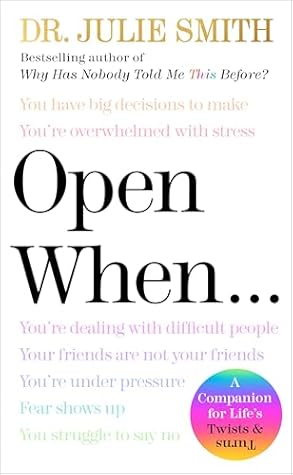More on this book
Kindle Notes & Highlights
The inner world is like a sauna; there are benefits to being there, as long as you don’t stay for too long. Instead, I strongly urge you, in challenging times, to connect with other humans in the real world wherever possible. That is where most of the answers are to our naturally fluctuating mental health in the face of life’s ups and downs.
What we need is to know how to use comparison
to our advantage and to spot when it’s self-destructive.
Your self-worth remains nonnegotiable at all times. It should never be on the line. This is absolutely essential. If your estimation of yourself as worthwhile is measured by others, this is the rogue ingredient that will turn everything sour. Turning envy into inspiration is no problem at all as long as you are not measuring your self-worth by how other people seem to be doing.
The risk of focusing on what others have that you don’t is the creation of deep dissatisfaction with a life you could have loved.
It is okay to want better for yourself, but if that comes from a place of resentment, then everything you achieve and accumulate will never feel enough.
Resentment is not a reflection of what the world owes you. It is a sign of what you need to work on.
Why not immerse yourself in deep gratitude that you had the chance to see something wonderful achieved and that you live in a time when you have the freedom to work for something similar should you so wish?
The best comparison you can make is with yourself. Ask yourself if you have made today that tiny bit better than yesterday.
when a friendship is dependent on you bringing something other than yourself in order to be acceptable, that is not friendship.
You are not obliged to stay in a friendship that is not healthy for you.
Fitting in is not the same as belonging. When you belong, it’s because you are accepted exactly as you are.
Not all criticism is created equal. Some friends will come to you with painful but honest words aimed at helping you to keep sight of your values. Others will criticize to bring you down and to minimize whatever threat they see in you.
In our tendency to focus on ourselves and what we want, need, and expect from friends, it is a healthy exercise to occasionally ask ourselves what we are bringing to the friendship.
However you respond to the situation you are in, make it a conscious choice and an exercise of your own agency.2
Let’s always aim for balance. With all this focus on whether our friends are doing a good enough job, always be willing to reflect on whether you are bringing to your friendships and communities what you hope to receive.
When a social interaction suddenly feels awkward, it is usually because you get distracted with concern for how you are coming across to the other person, which prevents you from fully absorbing yourself in the conversation.
The answer to overcoming those awkward moments and the social anxiety surrounding them is not to avoid social events but to see them as your chance to face those fears and practice the skills you pick up along the way.
Normalize the awkward moments,
Because we are the center of our own world, we wrongly assume we are close to the center of everyone else’s.


